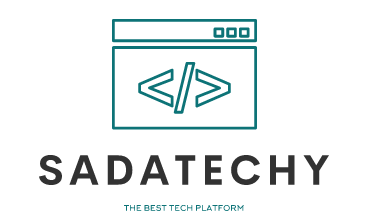Depending on their income, freelancers may not have to pay some taxes.
Depending on their yearly income, freelancers are exempt from paying income tax, consumption tax, and personal enterprise tax.
If the amount of income is less than the amount of income deduction, there is no taxable income and no income tax is due. In addition, if freelancers qualify as small enterprises, they are excluded from paying sales tax on their taxable income.
In addition, there is a company owner deduction for personal enterprise tax, with a standard of around 3 million yen per year.
Categories of taxes paid by independent engineers
If you wish to make a livelihood as a freelance engineer, you must declare and pay all taxes yourself, unlike an employee whose taxes are taken from their paycheck.
There are seven tax categories that independent contractors must pay.
We will discuss the many sorts of taxes that freelancers should be aware of so that they do not run into issues while completing their tax returns.
1 – Profit tax
The income tax is a tax on individual earnings.
Calculate the tax by applying the tax rate to the remaining taxable income after subtracting all deductions for the year.
Special income tax for rebuilding (2.1% of the ordinary income tax amount) must be reported and paid with income tax for each year until 2020.
Individual enterprise tax
Individual enterprise tax is a tax levied on legally defined firms (governed by local tax laws, etc.) that are owned and operated by individuals.
There are currently 70 officially classified sectors, and the majority of firms fall within this group, including freelancing work.
You are required to report your business revenue for the previous year to the prefectural tax office by March 15th of each year. There are none.
On the tax return form, it is important to include the appropriate information in the column about business tax concerns.
Tax on Consumption
Consumption tax is a tax with indirect tax features that imposes a wide and equitable impact on consumption.
Consumption tax is levied on asset transfers, loans, the supply of services, and import transactions done for compensation by Japanese company operators.
Consequently, if you match the criteria, freelancing is also eligible.
4: Resident tax
The combination of the prefectural tax and the municipal tax is sometimes referred to as the inhabitant tax.
It is a tax to make citizens share the costs of administrative services they are familiar with in proportion to their capacity to pay.
In the case of independent contractors, the inhabitant tax is mostly based on the previous year’s income, with a fixed per capita tax rate.
5. Real estate tax (if you own real estate)
Municipalities impose a property tax on individuals who possess fixed assets.
Owners of land and homes who are enrolled in the property tax register as of January 1 are eligible.
From the first through the fourth term, payments are made four times every year, and tax payment letters given in the first payment month must be paid by each payment deadline.
If a freelancer utilises his or her fixed assets for a business, the required costs will vary based on the proportion of commercial usage.
National Health care coverage
National Health Insurance is a government-run medical insurance programme administered by prefectures and municipalities.
In addition, insurance premiums received from members and taxes, etc., are provided by the national government, prefectures, and municipalities to support each other and share the expense when members suffer from disease or accident. It is also a profitable system.
Non-enrolled independent contractors are required to enrol in national health insurance and pay taxes as insurance premiums.
7: Federal pension
The National Pension is administered by insurance premiums and contributions from the national treasury, and it offers economic assistance by giving pensions in the case of life security in old age, incapacity due to disease or accident, or the subscriber’s death. It is a mechanism intended to
Self-employed individuals between the ages of 20 and 60 who reside in Japan are required to enrol and pay insurance payments.
Tax deductions on tax returns that freelancers should be aware of
When a freelancer considers tax savings on their final tax return, deductions from income and the recording of costs must come first.
You may deduct income deductions and costs from your income, so the more you deduct, the less taxable income you will have and the less you will pay in taxes such as income tax, resident tax, and individual enterprise tax.
In addition, if you file a blue return approval application together with a company start-up notification, you are eligible for a blue return special deduction, therefore increasing the deduction.
Revenue deduction
The Income Tax Law sets a deduction structure for income.
This is to account for the individual circumstances of each taxpayer when computing their income tax liability.
If the freelancer qualifies for each income deduction, the entire amount of relevant deductions is taken from the total amount of business income, etc., and income tax is computed based on the leftover amount.
Miscellaneous loss deductions, medical expense deductions, social insurance premium deductions, small business mutual aid premium deductions, life insurance premium deductions, earthquake insurance premium deductions, donation deductions, disability deductions, widow deductions, and single parent deductions are examples of income deductions.
Discount for blue returns
There are several advantages for filers of blue returns.
As a special deduction for blue returns, you can deduct 550,000 yen, 650,000 yen, or 100,000 yen from your income.
The following are the prerequisites for earning the 550,000 yen blue return special exemption.
In the case of a freelance engineer who operates a business that should generate business income, use double-entry bookkeeping to record transactions related to business income, attach the resulting balance sheet and profit-and-loss statement to the final tax return, and apply the appropriate tax deductions. It is necessary to submit the deduction amount to be obtained within the statutory date.
Choosing the cash basis will prevent you from receiving the 550,000 JPY blue return special deduction.
Moreover, if the whole amount of revenue, including business income, is less than 550,000 yen, the total amount is the maximum amount that may be deducted. In this instance, the total is the sum of the excess income amounts before profit and loss totalization.
Any loss of revenue will be considered inconsequential when computing this sum.
To qualify for the 650,000 yen special deduction for the blue return, you must fulfil the criteria for the 550,000 yen special deduction for the blue return and submit the final income tax return, balance sheet, and profit and loss statement for that year. By the filing date, etc. must be filed via e-Tax (electronic national tax return and tax payment system) (March 15).
Special deduction for blue returns from the National Tax Agency
Accounting for costs
Freelancers may report as essential costs the amount of cost of sales and other expenses immediately required to generate business revenue, as well as the number of selling expenses, general administration expenses, and other business expenses spent throughout the year. increase.
Even if the payment is made in the year, the amount for which the respondent has not yet been calculated will not be determined until the following year. are not required expenditures.
In contrast, even if no payments have been paid throughout the year, those whose obligations have been specified will be regarded as required costs for that year.
Taxes that are deductible costs
Personal enterprise tax and property tax are two taxes that freelancers can deduct as costs.
However, for personal enterprise tax, the entire amount paid will be considered essential costs for the year of payment. In contrast, only the fraction of fixed assets used for commercial operations will be deemed essential costs for fixed asset tax purposes.
Taxes that cannot be deducted as a business expenditure
Included among the taxes freelancers cannot deduct as costs are income tax and resident tax.
Likewise, taxes such as fines, penalties, and penalties cannot be included in the definition of required costs.
This is because they are regarded as costs that are not directly tied to the firm, even though they are paid during the year in question.
Refund of source-withheld tax
The overpaid income tax can be repaid by filing a final tax return if the amount of income tax withdrawn from a freelancer’s company revenue is more than the amount of income tax computed on the yearly income amount.
This return is known as an income tax return and can be filed for five years beginning January 1 of the following year, regardless of the final filing period.
Credit cards are advised for independent contractor tax payments
Depending on your method, maintaining monthly spending might be a hassle for freelancers who often do accounting, financial statements, tax returns, etc.
By utilising a company credit card that freelancers may create, it is simple to control spending and pay taxes.
Among the advantages of using credit cards for freelancers are:
Simple to verify payment items
If a freelancer uses a credit card, he or she will receive a monthly use statement, making it easier to control spending because “when,” “where,” and “how much” will be specified.
If you can combine as many of your payments as possible onto your credit card and maintain a record of where your money went, you can prevent missing charges.
Even for costs paid by direct debit for which no receipt is supplied, you can submit the statement as proof of payment.
Repayment of points
The majority of credit cards award points depending on spending.
These points can be redeemed for bill reductions or product swaps.
The amount a freelancer spends on business might be substantial compared to their expenditures.
It is also advised that, if you want to pay with a credit card, you may earn points for such huge purchases.
Can be used to pay taxes
Through the National Tax Credit Card Payment Site, taxes can be paid.
However, no receipt will be produced; if you want a receipt, please pay at the financial institution or tax office in the jurisdiction that is closest to you.
Please note that you cannot pay the tax at the counter with a credit card. In addition, a settlement fee proportional to the amount of tax to be paid will be assessed.
Let’s examine the taxes and tax breaks freelancing engineers pay.
As stated previously, freelance engineers are subject to seven taxes: income tax, personal business tax, consumption tax, resident tax, property tax, national health insurance, and national pension.
If you miss an item or a tax deduction, you wind up paying a disproportionate amount of tax.
When considering tax methods that do not result in a loss of revenue so that freelancers’ taxes can be lowered, it is essential to record costs with the proper information and determine if certain items qualify as income deductions.
For more details catch us on Facebook


